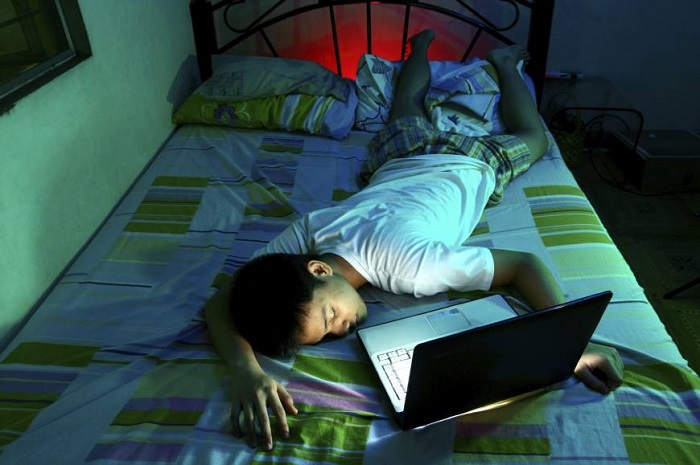Check out the negative effects of electronics gadgets among college students upon overuse.
Today, you can often see how, instead of communication, young people spend time together but on their phones. Typically, smartphone users start their day from, for example, checking social networks or news feeds and ending it the same way. Smart Gadgets have become an integral part of our lives: people use them not only for calls or messages, but also for weather testing, online shopping, job search, and more. Those scientists say that, beyond our attention, the dependence on smartphones radically changes our lives, and this does not always have positive effects, especially when it comes to effects on education.
Scientists Warn: excessive use of smartphones can lead to the development of depression, anxiety, and overwhelming stress. Moreover, frequent use of the phone, and especially in the second half of the day, badly affects the quality of sleep, causes physical discomfort, headache and reduces visual acuity. 90% of users at least once felt the so-called phantom vibration syndrome – when it seems that a smartphone rings or vibrates.
But all these manifestations are just a small part of the bigger problem.
Influence on Intelligence
Recent studies show that the use of smart gadgets negatively affects the intellectual level of a person. Caution can be reduced even when smartphones are not de facto used: even the fact that the gadget is just next to you is enough to distract attention unconsciously.
The fact is, scientists, explain that smartphones have become an integral “window to the world”, and therefore our brain automatically pays attention to them: “the signal from the phone (its, not alien) activates the same involuntary system of attention, which is responsible for perceiving the sound of his name”. Frequent reliance on the “pocket internet” in finding answers to questions also dramatically reduces the ability of the brain to memorize information.
Professor of Communication at the University of Arizona, Matthew Lapier, believes that “smartphones are fundamentally different from previous technologies, which is why their effect is much more powerful.”
Generation iGen
A separate cause for concern was the growth of a new so-called iGen generation, which was born between 1995 and 2012 and was the first not to imagine how the world looked without internet and smartphones. The study of American psychologist Jean Twenge draws attention to the fact that modern adolescents who use mobile devices excessively have become psychologically much more vulnerable than their predecessors. The author notes that the rates of depression among children have become much higher since 2011.
Children also began to spend more time at home than with friends, because now it’s not necessary to leave homes for communication. At the same time, the psychologist notes that the communication between adolescents and relatives did not increase.
Jean Twenge says that the “maturing age” of children is also delayed: “18-year-olds are now behaving themselves as 15-year-olds behaved themselves, and 15-year-olds are more likely 13-year-olds. Growing up is now delayed.” One could assume that life with a smartphone in the hand makes teenagers happier, and the scientific evidence suggests the opposite: “The more time the teenagers spend, looking at the screens, the more likely they will complain about the symptoms of depression,” the psychologist notes.
The overall apathy of the iGen generation has become more resilient, and studies confirm that “adolescents who spend three hours or more with electronic devices have a higher risk of suicide (e.g. suicide), 35%”.
Australian scientist Linet Vernon assures: for healthy development adolescents need to sleep from 8 to 10 hours a day, but phones break the sleeping patterns through the bright light and sound of messages, which leads to emotional excitement. As a result, children are tired and annoyed, which negatively affects the nervous system and emotional development.
How to Deal with the Problem
Scientists calm down: the negative impact of smartphones on the physical and mental state of a person is there, but this does not mean we should abandon modern technology. When you are too busy, it is ok to use your smartphone or iPad while studying, to proofread your essay, research on a topic or order a professionally written paper by EssayLib online essay writing company when you are out of options, and the deadline is too close. According to a case study, Overuse of mobile gadgets hampers students’ ability to study, sleep
However, it’s important to spend more time away from the gadget, preferably in the fresh air. To improve the quality of sleep will also be useful to put the smartphone away from the bed, and use the classic clock as an alarm clock. During the training, you need not just put the phone to a silent mode, but set it aside as fast as possible.
According to Vernon, the best way to prevent the problem of addiction to gadgets among students is to raise their awareness of the possible consequences of too long usage of the phone, but we should not forget that children always take an example from adults and therefore adults should set an example.
Also Read:
Wonderful Gadgets to buy
Today, there are many modern applications for phones aimed at improving the health of people – from weight tracking programs to full yoga classes. Some applications track the frequency and degree of a headache, reminiscent of the need to consume more water and analyze the quality of sleep. The key idea is to use electronic gadgets wisely.
This post was last modified on July 21, 2023 11:18 PM

